Questionhi, i have a 3foot tank which has been set up since may. i keep approx 20guppies, 2 bumble bee gobies, 3mollies, 3neons, 6platies and 3catfish in it. yesterday one of my mollies died (he had been gasping on the tank bottom for 2 days so i wasn't too surprised) today i came home and i found 2 dead male guppies and a dead catfish. i checked my water and everything is fine. i don't know what went wrong. i also have 2 baby angel fish but i'm not sure if they will hurt my other fish so i've got them in a separate tank. is that ok? can i put them in the big tank? is my tank too crowded? will more fish die?
AnswerHi Zoe_amandla;
It's possible the tank is overcrowded but unless I know all the dimensions of your tank such as height, length and depth, I really can't tell. I can tell you that you need at least a 50 gallon just for the fish you have now. Their future adult sizes equal about 50 inches, as long as your catfish aren't a type that grows larger than about 2 inches. For community tanks with fish that say smaller than about 3 inches, you can have one inch of fish per gallon. Your fish may still be young so always calculate the population based on their future maximum size as adults. I wouldn't put the angels in until you know for sure what you already have.
Make a 25% water change and see if that helps. You should be doing them weekly and vacuuming the gravel too. Test the water for the levels of pH, ammonia, nitrite and nitrate. The pH can be in a range of 6.7 to 8.5, but stable. The range is just a reference point for what's "normal" but you don't want it fluctuating. Your partial weekly water changes will help keep it at a stable point. Ammonia and nitrite should always be "zero" in an established aquarium. If either or both are elevated, it means something is wrong biologically in your filter or the tank is dirty from overcrowding or overfeeding. Nitrates are the end result of your tank's biological filtration. It is removed by weekly water changes and gravel vacuuming. Try to keep it lower than 40 ppm at all times. Even better is 20 ppm or lower. That is pretty safe for most fish.
Let me know more about your tank, type of filtration, complete measurements, how often you clean it, how often you clean the filter, etc., and we can go from there to hopefully figure out what's been going on...
At Your Service;
Chris Robbins

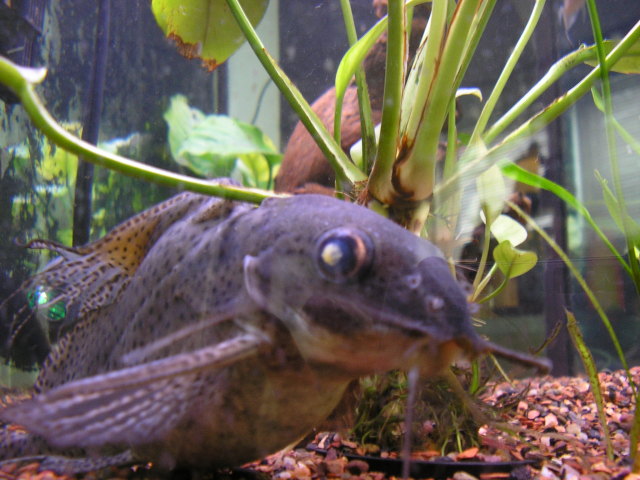 eye problem in black lace cat fish
QuestionQUESTION: This fish has what looks like yellowi
eye problem in black lace cat fish
QuestionQUESTION: This fish has what looks like yellowi
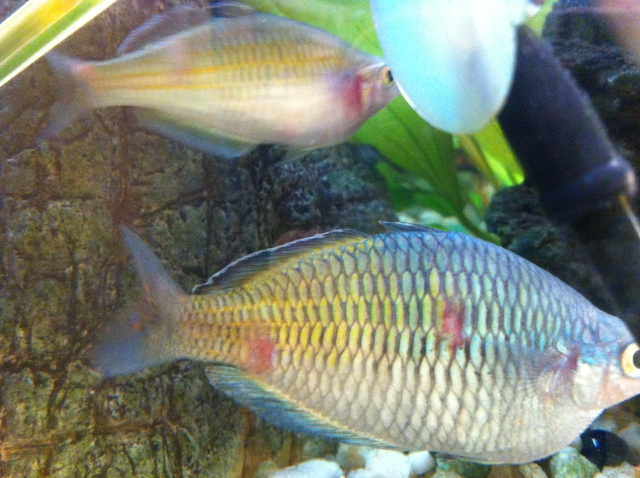 Columnaris/Costia?
QuestionBosmani with bumps
Scales missing
Columnaris/Costia?
QuestionBosmani with bumps
Scales missing
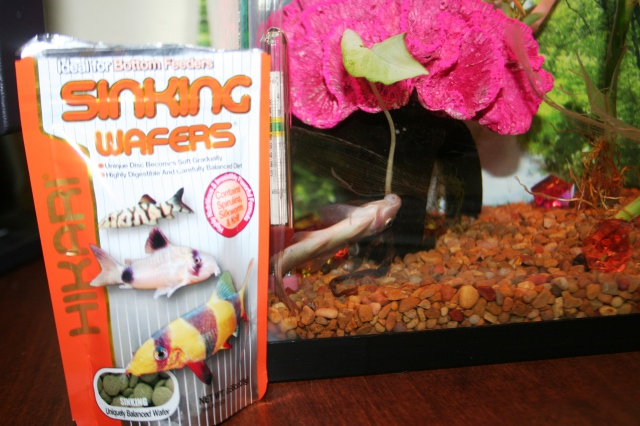 Chinese Sucker fish is sick!
Question
Chinese Suckerfish
4 fish in the 5 gall
Chinese Sucker fish is sick!
Question
Chinese Suckerfish
4 fish in the 5 gall
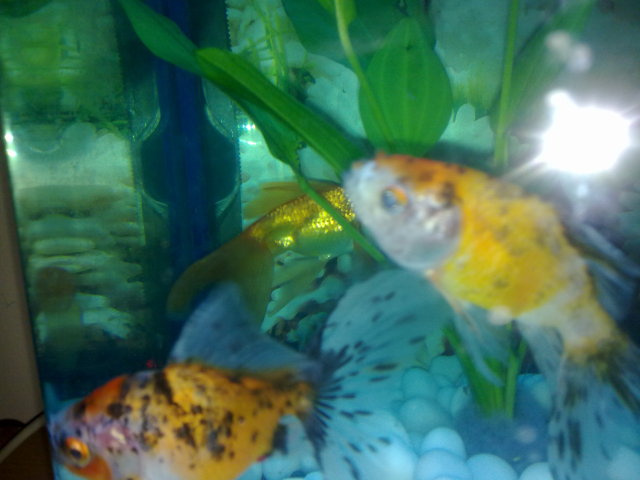 Death of gold fish
Question
The fish in the right
I have a 15 gallon tank
Death of gold fish
Question
The fish in the right
I have a 15 gallon tank
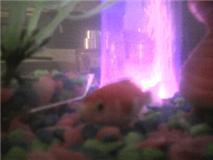 my fish is sinking to the bottom
QuestionQUESTION: Hello, my fish is sinking to the bott
my fish is sinking to the bottom
QuestionQUESTION: Hello, my fish is sinking to the bott